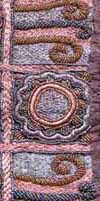17. LOCATION IN FLAMES
Though my co-workers and
I were relieved of the charge of the patients, there remained many things
arising out of the black plague still to be dealt with.
I have referred to the negligence
of the Municipality regarding the location. But it was wide awake so far
as the health of its white citizens was concerned. It had spent large amounts
for the preservation of their health, and now it poured forth money like
water in order to stamp out the plague. In spite of the many sins of omission
and commission against the Indians that I had laid at the door of the Municipality,
I could not help commending its solicitude for the white citizens, and
I rendered it as much help as I could in its laudable efforts. I have an
impression that if I had withheld my co-operation, the task would have
been more difficult for the Municipality, and that it would not have hesitated
to use armed force and do its worst.
But all that was averted. The
Municipal authorities were pleased at the Indians' behaviour, and much
of the future work regarding plague measures was simplified. I used all
the influence I could with the Indians to make them submit to the Municipality's
requirements, and I do not remember anyone having resisted my advice.
The location was put under a
strong guard, passage in and out being made impossible without permission.
My co-workers and I had free permits of entry and exit. The decision was
to make the whole location population vacate, and live under canvas for
three weeks in an open plain about thirteen miles from Johannesburg, and
then to set fire to the location. To settle down under canvas with provisions
and other necessaries was bound to take some time, and a guard became necessary
during the interval.
The people were in a terrible
fright, but my constant presence was a consolation to them. Many of the
poor people used to hoard their scanty savings underground. This had to
be unearthed. They had no bank, they knew none. I became their banker.
Streams of money poured into my office. I could not possibly charge any
fees for my labours in such a crisis. I coped with the work somehow. I
knew my bank manager very well. I told him that I should have to deposit
these monies with him. The banks were by no means anxious to accept large
amounts of copper and silver. There was also the fear of bank clerks refusing
to touch money coming from a plague-affected area. But the manager accommodated
me in every way. It was decided to disinfect all the money before sending
it to the bank. So far as I remember, nearly sixty thousands pounds were
thus deposited. I advised such of the people as had enough money to place
it as fixed deposit, and they accepted the advice. The result was [that]
some of them became accustomed to invest their money in banks.
The location residents were
removed by special train to Klipspruit Farm near Johannesburg, where they
were supplied with provisions by the Municipality at public expense. This
city under canvas looked like a military camp. The people who were unaccustomed
to this camp life were distressed and astonished over the arrangements,
but they did not have to put up with any particular inconvenience. I used
to cycle out to them daily. Within twenty-four hours of their stay they
forgot all their misery and began to live merrily. Whenever I went there
I found them enjoying themselves with song and mirth. Three weeks' stay
in the open air evidently improved their health.
So far as I recollect, the location
was put to the flames on the very next day after its evacuation. The Municipality
showed not the slightest inclination to save anything from the conflagration.
About this very time, and for the same reason, the Municipality burnt down
all its timber in the market, and sustained a loss of some £10,000.
The reason for this drastic step was the discovery of some dead rats in
the market.
The Municipality had to incur
heavy expenditure, but it successfully arrested the further progress of
the plague, and the city once more breathed freely.

